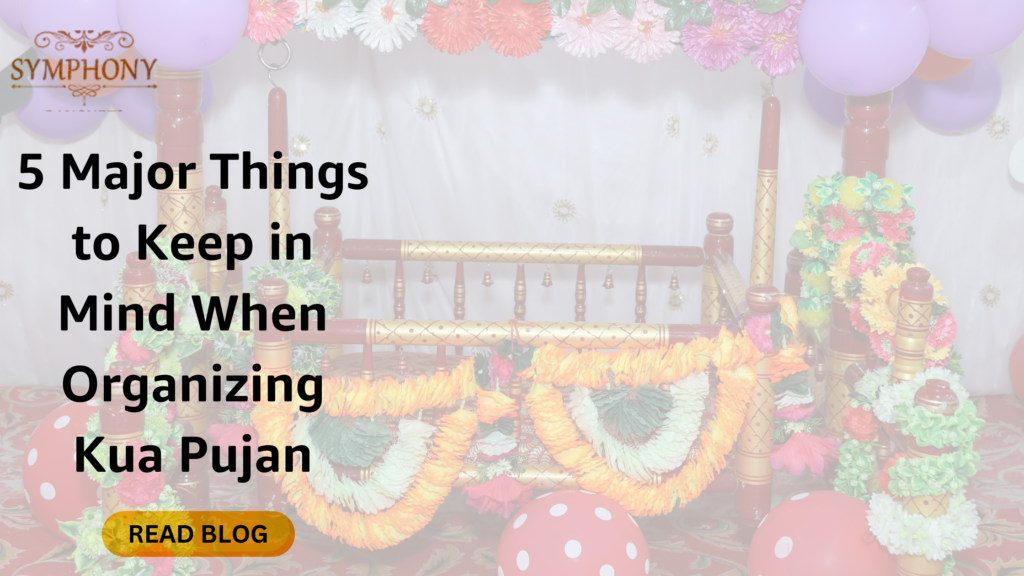
The Kuan pujan, also known as Bhoj, is a significant Hindu cultural ceremony celebrated by Indian communities to welcome a newborn. Rooted in tradition, this ceremony seeks blessings for the infant’s well-being through the veneration of a water well—a symbol of life and fertility. As an integral part of the broader tapestry of baby care rituals in India, kuan pujan ceremony holds both religious and practical significance. The ritual not only connects with ancient traditions but also ensures the baby receives pure water essential for their health.
Importance of Kuan Poojan Ceremony
Kuan Poojan holds both religious and practical significance. Traditionally performed on the 11th day after a baby’s birth, the ceremony involves a puja, a sacred fire ceremony (havan), and offering prayers at a well. Wells, considered sacred, was the primary source of water in ancient times. Conducting the ceremony at a well seeks divine blessings and ensures the newborn has access to clean and pure water—a fundamental element for their health.
Building upon the Importance
The cultural and religious importance of Kuan Poojan extends beyond the ceremony itself. This knowledge fosters a deeper connection to traditions and helps preserve the cultural heritage for future generations. While organizing this ceremony, keep this broader context in mind to ensure that the ceremony serves as both a spiritual and educational experience.
5 Thing To Remember During kuan pujan
1. Community Involvement and Coordination
Organizing kuan pujan ceremony is a communal effort. It involves the active participation of family members, friends, and local priests. Establish clear communication channels to coordinate roles and responsibilities. Assign tasks based on individuals’ strengths, ensuring a seamless and well-executed ceremony. Encourage open dialogue within the community to address any concerns or suggestions, fostering a sense of unity and shared responsibility.
2. Traditional Rituals and Ceremonial Practices
Respect for tradition is paramount in organizing this ceremony. Ensure that the puja, havan, and other rituals adhere to the prescribed traditions. Collaborate with knowledgeable individuals, such as local priests or elders, to guide the ceremony in a culturally authentic manner. Pay attention to details, such as the specific prayers, offerings, and the sequence of events.
3. Symbolic Offerings and Well Maintenance
Kuan poojan, symbolizing life and fertility. Prioritize cleanliness and maintenance of the well and its surroundings. Arrange symbolic offerings—flowers, milk, and water during the ceremony, upholding its sanctity and emphasizing the profound connection between the community and the life-giving source of water. Ensure the well becomes a focal point, reflecting its significance in this revered ritual.
4. Inclusive Participation of All Ages
Make kuan pujan a family affair transcending generations. Involve participants of all ages, assigning age-appropriate roles to foster inclusivity and shared responsibility. Intergenerational participation not only strengthens community bonds but also imparts cultural significance to younger members, ensuring the tradition’s continuity. Create a meaningful and inclusive ceremony that resonates across age groups, reinforcing the importance of kuan pujan in the fabric of your community’s cultural heritage.
5. Documenting the Cultural Heritage
Preserving the cultural heritage associated with this ceremony is vital for future generations. Assign someone the responsibility of documenting the ceremony through photographs or videos. Capture not only the rituals but also candid moments and the overall atmosphere. Create a digital archive or a physical album to be shared within the community, serving as a historical record and reinforcing the cultural identity of the community.
Conclusion
Organizing kuan pujan extends beyond coordinating a ceremony; it’s a sacred responsibility transcending logistical details. This endeavor is a unique opportunity to celebrate tradition, strengthen community bonds, and pass on cultural heritage. To preserve the occasion’s sanctity, prioritize community engagement, adhere to time-honored practices, uphold the symbolic importance of the well, encourage inclusive participation, and meticulously document the event. Embracing these principles ensures the ceremony endures as a cherished and meaningful tradition for generations. For organizing the kua pujan ceremony in a better way, feel free to contact Symphony, renowned as the best banquet hall near Rohtak Road.
